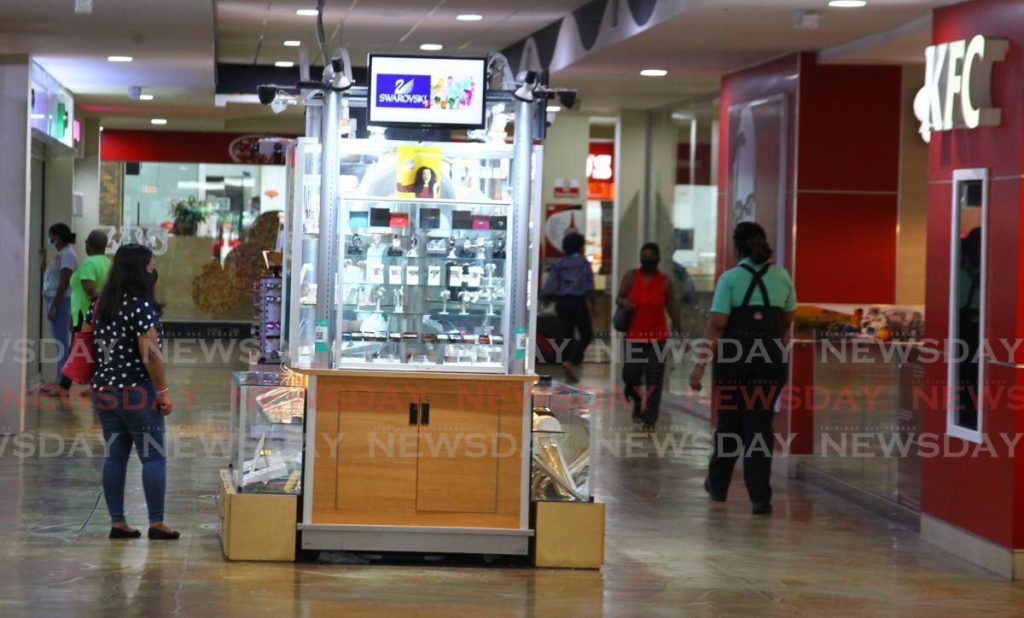The stall at the mall

THE confusion and fear that businesses in Trincity Mall are experiencing will be replicated in similar establishments if their management teams don't balance the need to keep the business running with the reality of diminished revenues.
All mall stores are taking a hit because of reduced sales, limits on customer congregation in stores, difficulties experienced in importing goods for sale and a general downturn in spending power and economic activity.
Complicating matters is the design of malls themselves, which were created to be most profitable when they are full of people. That's a business model that will continue to be hit hard by the restrictions necessary to control the spread of covid19, potentially for months to come.
It is not a problem that's unique to TT. In the US, department stores and then malls began to decline as online shopping grew. That sales drop accelerated in 2020 to crash speeds.
The HCL Group of Companies (HCL) owns Trincity Mall and, according to its tenants, the landlord hasn't done a particularly good job of communicating developments with the mall's tenants. They claim that the mall's owners are "unforgiving" about levying "unrealistic charges" related to tenancy and the upkeep of the mall.
Complicating matters is the relationship between CL Financial, the parent company of HCL and the Government of Trinidad and Tobago, which has invested billions in keeping the failed financial empire afloat over the course of a decade.
Minister of Finance Colm Imbert issued a tangential reminder of this fact by noting at last Thursday's post-Cabinet media briefing, that any liquidator appointed to proceed with the sale must first get a valuation, "then the board would have to decide if this is the right time."
Implied in this statement is government's intention to have a say in the future of these mall properties, and by extension, the future of that aspect of the nation's business.
The challenge that all TT mall owners will face is how to continue business with an eye on solvency while managing the reality of diminished income throughout the mall business. This isn't only a problem for tenants, and it's a problem that will only be solved through collective and collaborative action.
One challenge that malls face is that visitors going to several stores have to sanitise at every store they enter. Rethinking mall traffic with a different customer satisfaction model while meeting hygiene requirements might go a long way toward encouraging visitors to visit mall locations, though it might mean re-engineering store layouts and access paths.
For malls to emerge from the challenges of business of covid19 with any degree of success, they must abandon top-down dictates and collaborate with business owners to present the safest and most effective solutions for shoppers.


Comments
"The stall at the mall"